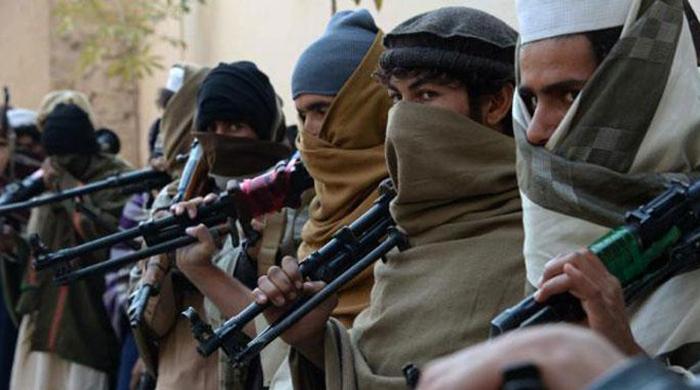Four-nation talks on Afghan peace begin in Islamabad amid dim hopes
May 18, 2016

ISLAMABAD: A fifth round of four-nation talks aimed at laying the ground for a negotiated end to the Afghan war began in Islamabad on Wednesday, as hopes faded for bringing the Taliban insurgents to the table quickly.
The Afghan government declined to send a delegation from Kabul for the new talks, saying its ambassador in Islamabad would represent the government.
The Quadrilateral Coordination Group, made up of officials from Afghanistan, Pakistan, the United States and China, have been engaged in efforts to facilitate direct talks between the Afghan government and the Taliban.
The Taliban, who now control or contest more territory than at any time since they was ousted by a US-led intervention in 2001, have attended none of the group’s meetings.
A spokesman for Afghan President Ashraf Ghani said Afghanistan would not be sending a delegation from Kabul.
“The Afghan delegation that participated from Afghanistan will not participate until Pakistan fulfils its promises made during previous meetings,” Dawa Khan Menapal said.
Pakistan had expressed confidence it could pressure Taliban representatives to return to the negotiating table by March, but the insurgents released a statement in late February refusing to join.
Afghan Taliban forces have stepped up their campaign in the last year to topple the Kabul government, which has struggled since most foreign troops left at the end of 2014.
High-profile suicide attacks and Taliban territorial gains in Helmand province have underlined how far Afghanistan remains from peace.
The ultimate goal of the diplomatic manoeuvring is to bring Taliban into direct negotiations with the Kabul government.
The Taliban remain split on whether to participate in the talks.
The first formal peace talks with the Taliban since the latest phase of Afghan war began in 2001 collapsed last year after it was announced their founder, Mullah Mohammad Omar, had been dead for two years, throwing the militant group into disarray.
The Taliban have since been riven by factional infighting.











